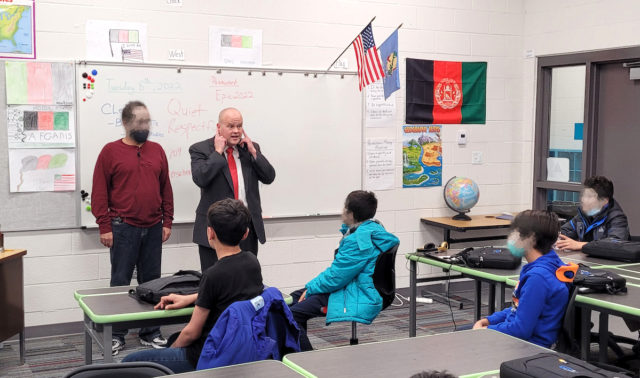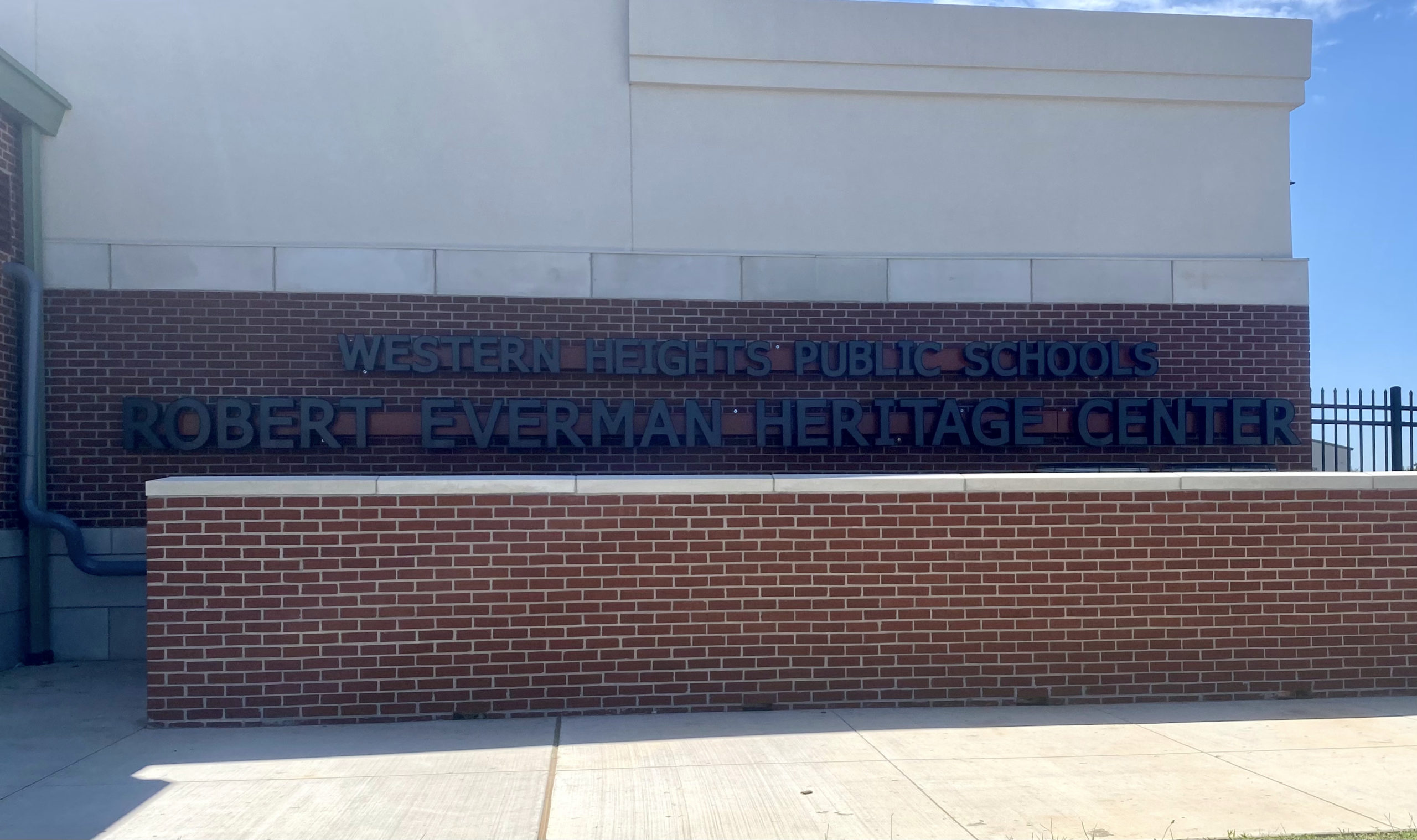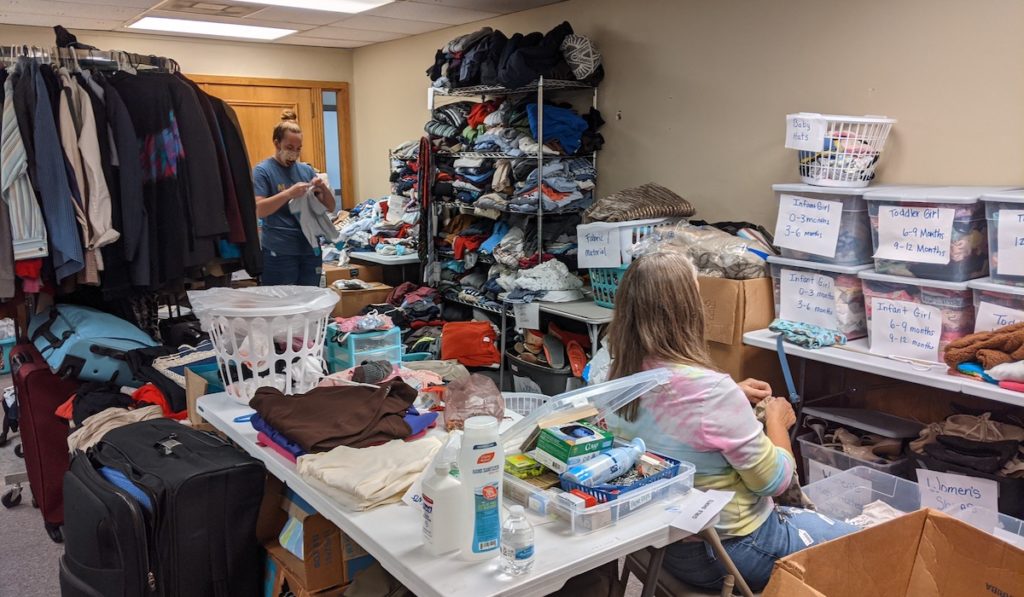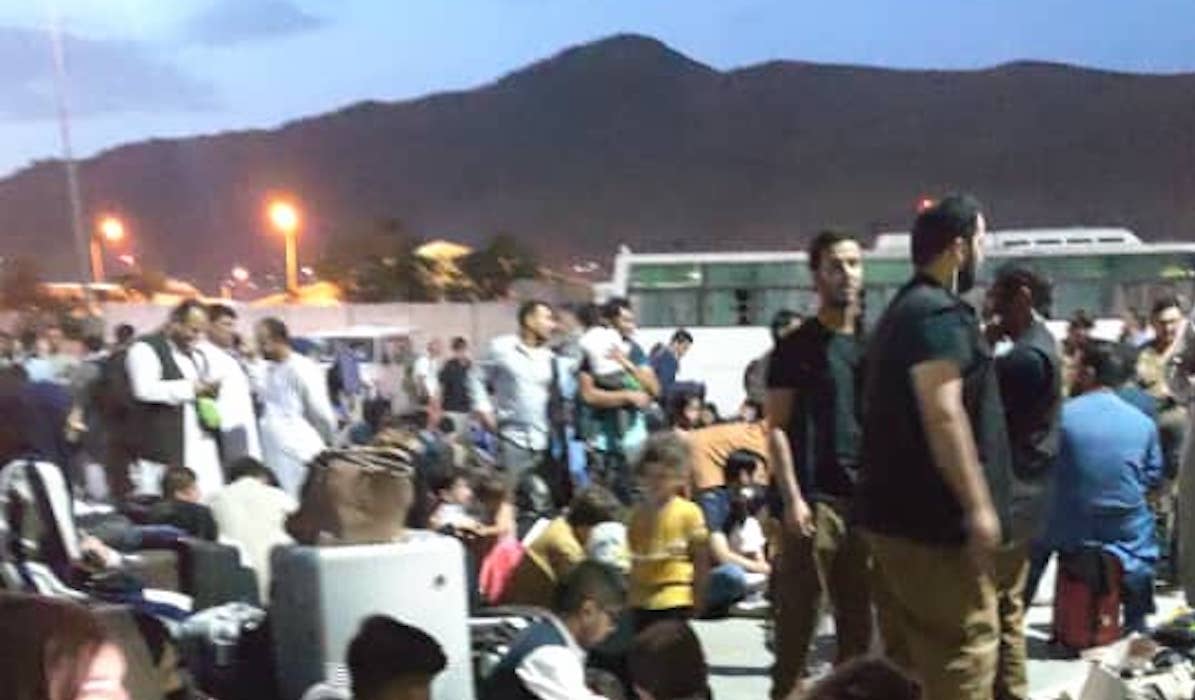
With hundreds of school-aged Afghan children arriving in the Oklahoma City area following the 2021 withdrawal of U.S. troops from Afghanistan and the subsequent Taliban takeover, local resettlement organizations identified the need for an educational transition program to help these students acclimate to American culture and learn English.
Catholic Charities, the only federally recognized refugee resettlement agency in Oklahoma, and the Spero Project began planning for an education program to meet this need in the fall of 2021 because about 1,000 Afghan refugees were expected to arrive in Oklahoma City between September and February. According to the Spero Project’s website, only about 470 refugees had been resettled in the metro over the previous five years.
The Spero Project previously operated New Land Academy, an alternative education option that provided learning solutions for middle and high school refugee students, but that school closed in 2018. As a result, refugee-services organizations have had to build a whole new program to accommodate the recent influx.
The Spero Transitional Education Program, also called STEP, serves Afghan students whose families are still staying in temporary housing, such as hotels, waiting for a more permanent situation.
“Because they’re living in hotels, they weren’t able to enroll in traditional school, because they’re in transition,” said Epic Charter Schools language family relations specialist Misty Kline. “There was a lot of need for the kids to have somewhere to go.”
STEP’s day-to-day operations look much like those of an average American school. Students arrive at school by bus at 9 a.m. Classes are held in the Robert Everman Heritage and Multicultural Center at Western Heights Public Schools. The students rotate through classes that include cultural orientation, English, geography, math, physical education and art. The school day ends at 2:30 p.m.
A number of local educators have been pitching in to get the school up and running. Santa Fe South Superintendent Chris Brewster has been providing consulting, Epic has been providing curriculum and teachers for students in fifth through 12th grades, and other organizations, such as Crosstown Church, have been assisting outside the education sphere, helping families get comfortable in their new homes. The Spero Project has also hired teachers for younger kids in the program.
Once families are placed in long-term housing, students are able to enroll in the corresponding local school district.
“These families are coming from radically different experiences,” Brewster said. “Obviously (they have) different language and cultural understandings and expectations. The refugee families as a group are not a monolith. You have really different experiences, different age groups. Some are from urban areas like Kabul and speak one language, and some are from rural areas and have very different schooling experiences.”
In January, Brewster said about $1.2 million had been donated privately to support one semester’s worth of programing. He also expressed hopes that a transitional school like STEP, designed to help newly arrived students acclimate to their new home, might become a permanent institution.
“It’s probable that if you could build a school for newcomers, you could really acclimate them and bring them up to speed linguistically and find the type of trauma supports that many of these kids need,” Brewster said. “We have, as a Santa Fe South district, looked into potentially starting a new school in the fall. That would be a newcomer school and would work to sort of roll this program that Spero is standing up from a privately funded, privately run program into a publicly run program through Santa Fe South. But we have not formalized that yet.”
‘It’s a real honor to be able to walk alongside these families’

Catholic Charities director of communications Carly Akard said it has taken about 34 days, on average, from an individual or family’s arrival to getting them into permanent housing.
“In that process, we’re trying to help them with cultural orientation,” she said. “Some of them are arriving illiterate, even in their own language. We try to at least get them acclimated to English with some ELL classes.”
Kline, who formerly worked with the Spero Project, said helping students with English and cultural acclamation has been Epic’s main focus.
“Epic Charter Schools exists to serve the underserved,” Epic Superintendent Bart Banfield said. “We want to be able to meet students where they’re at. That’s whether they’re from our country or not or whether they speak our language or not.”
RELATED
‘A historic and monumental undertaking’: Oklahomans mobilize for Afghan refugees by Andrea DenHoed
Kline said Epic has generally been responsible for the education of Afghan students in fifth through 12th grades, and those students work with Epic teachers and complete Epic curriculum during their time at STEP each day. She said students grade four and below receive curriculum and instruction from the teachers hired by the Spero Project.
Kline said Epic currently serves 127 Afghan students, some of whom are still in temporary housing and attending STEP and some who have been placed in long-term housing and chose to stay with Epic. She said they’ve assisted 27 students through STEP who are now in long-term housing and neighborhood schools.
“Teaching Textbooks has partnered with us and they made a major donation, so we’re able to level each student’s math so each student is able to be in a math program that is on their level,” Kline said.
Epic is also working with the Spero Project’s school liaisons to help students and their families make more permanent schooling decisions. Kline said schooling decisions can be made more difficult by the fact families often don’t know when they will be resettled into permanent housing until it’s time to move. Whether a student ends up enrolling in Oklahoma City Public Schools, Edmond Public Schools or another district depends on where a family moves.
“Our model isn’t the perfect model for every student. But it is the perfect model for a lot of students,” Kline said. “When a family moves, we, along with an interpreter, will meet with the family and help each family member decide what is the best plan. For some of the older students, Epic might be the best fit. But for some of the younger students, going to a brick-and-mortar might be a better situation.”
Kline said as of May 9, there are still nearly 500 people waiting to be placed in long-term housing.
“It’s a real honor to be able to walk alongside these families at such a difficult time of their life where they don’t have anyone to trust,” Kline said.
Banfield said the collaboration between Epic, Spero and other volunteers has been moving to witness.
“We went from not having a school at all for that to creating a school with staffing and being able to work through the issues in terms of translation, language, child nutrition and safety,” Banfield said. “If you walk in, it’s very organized and kids are learning. That’s what resonated with me. This triage effort from multiple entities being able to come together under a common cause — which is doing what is in the best interest of students.”
Follow @NonDocMedia on:
‘I can’t imagine the trauma they’ve come out of’

When members of Crosstown Church, in Oklahoma City, learned of the resettlement effort, lead minister Ben Janssen said they wanted to get involved.
“I think it’s important for people to know that, at least from our standpoint as a church, this is purely because we believe people are made in the image of God,” Janssen said. “All people matter for that reason, especially their basic needs, and we want to help these families with whatever we can. There’s no subtle motive from our standpoint to try to force them into our faith or anything like that.”
Janssen said the church mostly has assisted in collecting furniture donations and helping families settle into their new apartments. He said he feels Crosstown is a sponsor church for the families they help and that they try to stay connected with them.
He mentioned one family in particular, a couple with six children, currently living in a three-bedroom apartment in Oklahoma City. Janssen said the parents are illiterate and the oldest child, who is about 9, is the only family member that can speak a little bit of English, though he uses a phone service or Google Translate for linguistic assistance.
“It’s really just spending time with them and showing love by action,” Janssen said. “We’re doing a lot of education with the kids just trying to teach them English.”
Janssen recalled a day he took his sons to visit the family soon after they had settled in their new home.
“We played a little soccer and when we got done, the oldest kid used his phone to try to communicate with me,” Janssen said. “What it came back to in English was, ‘Thank you so much for making us happy.'”
Janssen said he doesn’t know if that’s exactly what the child had meant to say.
“It must be close. He had a big smile on his face,” Janssen said. “I think it’s just a human need to be around people who care and just want to hang out with them. I can’t imagine the trauma they’ve come out of.”
In April, the Oklahoma chapter of the Council on American-Islamic Relations partnered with St. John’s Episcopal Church to open an Afghan Refugee Resource Center in service of the individuals resettling.
At the resource center, families and their sponsors can select clothing — including cultural clothing donated by local Muslim families — hygiene products and other household needs.
“Helping those in need is central to putting faith into action. We are so pleased that our Afghan newcomers can now see all our resources before choosing what works best for their families,” CAIR-OK refugee service coordinator Jen Hund said in a press release. “Because of the large number of families served, we will continue relying on community support to keep the center stocked with much-needed items.”
The center is open Mondays and Wednesdays from 11:30 a.m. to 3:30 p.m. and is located inside St. Johns Episcopal Church, 5401 N. Brookline Ave.






















